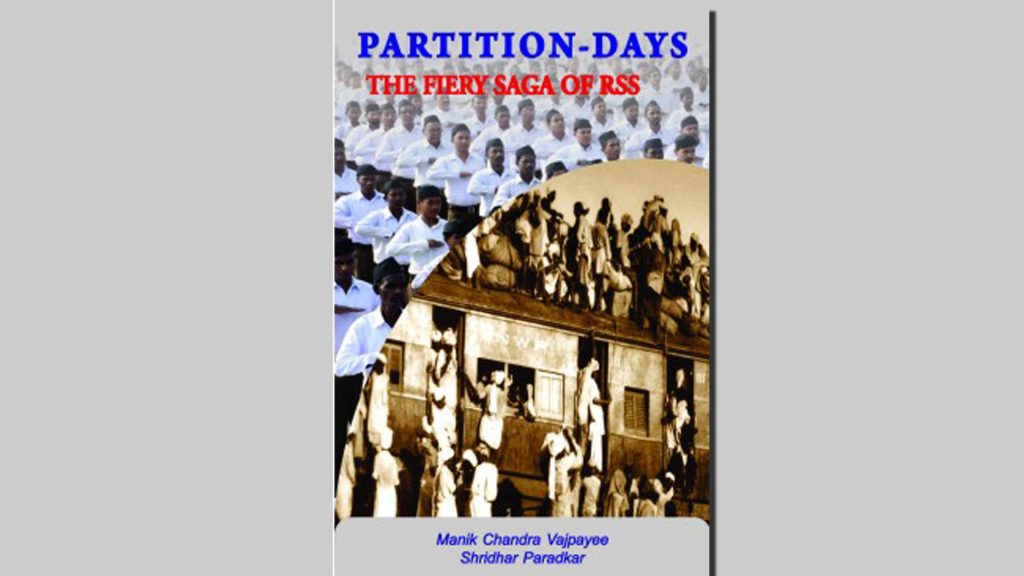The second sarsanghchalak (chief) M.S. Golwalkar, also known as Guruji, was heading the organisation during those tumultuous days. Guruji, Babasaheb Apte, the first RSS Pracharak (full time worker)and Balasaheb Deoras, who became third sarsanghchalak in 1973, extensively toured the country in the months before Partition as they had an inkling of the way things were going to unfold on the ground.
Hundreds of young men and middle-aged people joined the RSS in the run-up to the partition. The RSS expanded rapidly especially in cities and villages of pre-Partition Punjab, such as Rawalpindi, Lahore, Peshawar, Amritsar, Jalandhar, and Ambala, among others.
The province of Sindh had around 80 shakhas at that time. There were 52 pracharaks including Lal Krishna Advani, who later headed the Bharatiya Janata Party and also became the deputy Prime Minister of India.
The RSS had set up the Punjab Relief Committee and the Hindu Sahayata Samiti (Hindu Support Committee). Initially, both these organisations operated from. The Punjab state sanghchalak, Raibahadur Badridas, was the chairman and Dr Gokulchand Narang was the treasurer of these committees.
There were more than 1,500 RSS daily shakhas with a daily attendance of more than one lakh swayamsevaks in undivided Punjab. The three pracharaks who were sent initially from Nagpur to Punjab were K.D. Joshi, Digambar Paturkar and Moreshwar Moonje.
Manikchandra Vajpayee and Sridhar Paradkar have documented the RSS activities during the partition in their seminal work ‘Partition Days: The Fiery struggle of the RSS.
They wrote, ‘In such times swayamsevaks(volunteers) of the RSS came forward. Without concern for their own families they risked everything to protect fellow-Hindus. The Punjab relief committee was set up. Relief camps were opened at many places. Hindus from nearby villages, who were not secure, were brought to these camps and from there taken to India with the help of the Indian army and they did not think it was the end of their duty. They even provided food and shelter to lakhs of displaced fellow- countrymen for months together.”
AN Bali, a professor of English at Lahore, gave a first-person account in his book, Now It Can be told, which was published in 1949. Bali, who was a professor in Lahore University writes, “Non-Violence and the advice given by (Congress leaders) , to stay out where they were with a firm trust in God could only be given from a safe distance. Who else came to the rescue of the people at this stage, but a band of young selfless Hindus, popularly known as the RSS. They organised in every Mohalla of every town of the province the work of evacuation of the Hindu and Sikh women and children from dangerous pockets to comparatively safe centres. They organised their feeding, medical aid, clothing and care.”
Bali further adds, “When the entire Punjab was on fire and Congress leaders were sitting helplessly in Delhi, at that time, volunteers of RSS saved the people of Punjab with their discipline, and physical strength, risking their own lives. Now, if somebody from outside Punjab was to tell the Hindus and Sikhs to forget those Sikhs and the brave heroes of Rashtriya Swayamsevak Sangh who put their lives at risk to defend them, then their calls would go unheeded. Each and every person from amongst the refugees who came from West Pakistan is indebted to the Sangh. When everybody had abandoned them, only the Sangh stood by them.”
KM Munshi, a member of Constituent Assembly, founder of Bharatiya Vidya Bhavan, a stalwart of India’s freedom struggle and cultural renaissance issued a press statement that was carried out by the weekly Akashvani journal published from Jalandhar, in October 1949 (pp6-7. ) Munshi said the RSS swayamsevaks showed unparalleled bravery in Punjab and Sindh. They fought with the tyrant Muslims and saved the honour and lives of thousands of women and children. Many of these young men laid their lives while carrying out this task, said Munshi.
As India would observe ‘Vibhajan Vibhishika Diwas’ on 14 August, it is time to honour those forgotten heroes who showed exemplary courage to save millions of Hindus and Sikhs from the bloody riots and unprecedented violence unleashed at them in those areas which became a Pakistan territory.
Incidentally, a significant fall out of the RSS growing popularity due to its role in protecting millions of Hindus and Sikhs during partition was that the Congress Party banned it in 1948 by making a false case against it after the assassination of Mahatma Gandhi. It is said that the Congress was unnerved by the growing influence of the RSS and it saw it as a political rival, though the Sangh was not involved in any political activity.
Congress stalwart Dwarika Prasad Mishra, who was the Home Minister of Central Provinces at that time, puts aptly in his autobiography, Living in An Era (Pp59), “That ma GaMahatndhi’s assassination gave a handle to unscrupulous politicians to defame and, if possible, to pull down their rivals is difficult to deny.”
